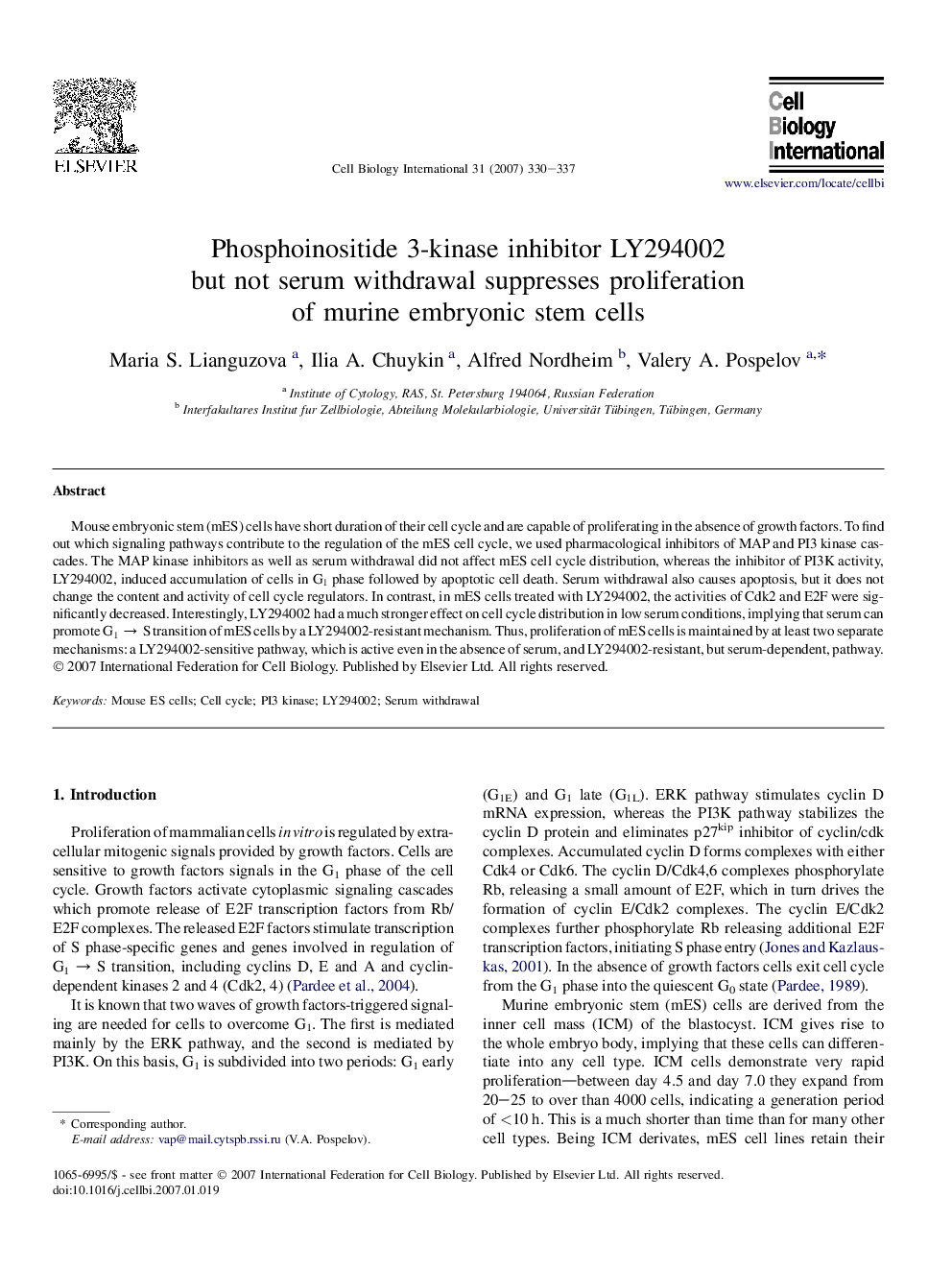| Article ID | Journal | Published Year | Pages | File Type |
|---|---|---|---|---|
| 2067669 | Cell Biology International | 2007 | 8 Pages |
Abstract
Mouse embryonic stem (mES) cells have short duration of their cell cycle and are capable of proliferating in the absence of growth factors. To find out which signaling pathways contribute to the regulation of the mES cell cycle, we used pharmacological inhibitors of MAP and PI3 kinase cascades. The MAP kinase inhibitors as well as serum withdrawal did not affect mES cell cycle distribution, whereas the inhibitor of PI3K activity, LY294002, induced accumulation of cells in G1 phase followed by apoptotic cell death. Serum withdrawal also causes apoptosis, but it does not change the content and activity of cell cycle regulators. In contrast, in mES cells treated with LY294002, the activities of Cdk2 and E2F were significantly decreased. Interestingly, LY294002 had a much stronger effect on cell cycle distribution in low serum conditions, implying that serum can promote G1 â S transition of mES cells by a LY294002-resistant mechanism. Thus, proliferation of mES cells is maintained by at least two separate mechanisms: a LY294002-sensitive pathway, which is active even in the absence of serum, and LY294002-resistant, but serum-dependent, pathway.
Related Topics
Life Sciences
Biochemistry, Genetics and Molecular Biology
Biophysics
Authors
Maria S. Lianguzova, Ilia A. Chuykin, Alfred Nordheim, Valery A. Pospelov,
